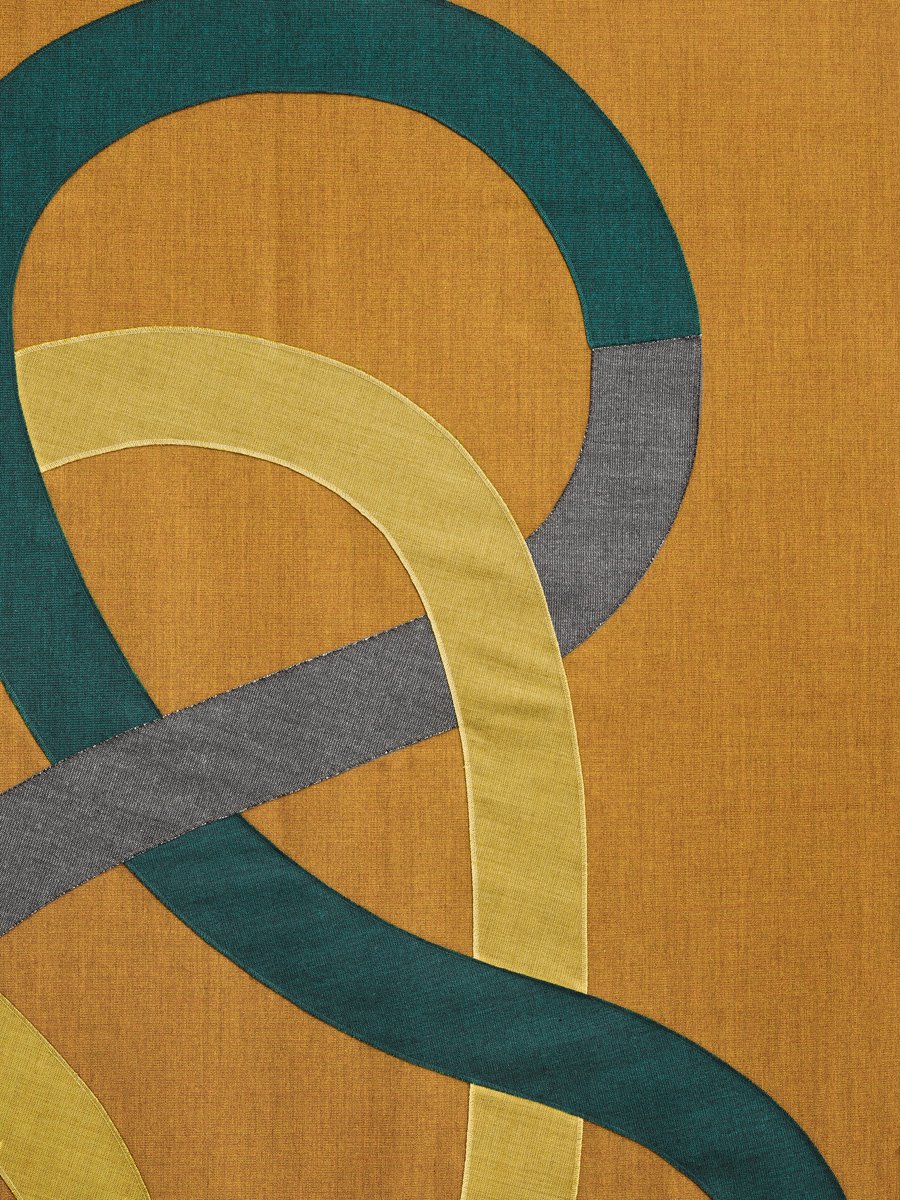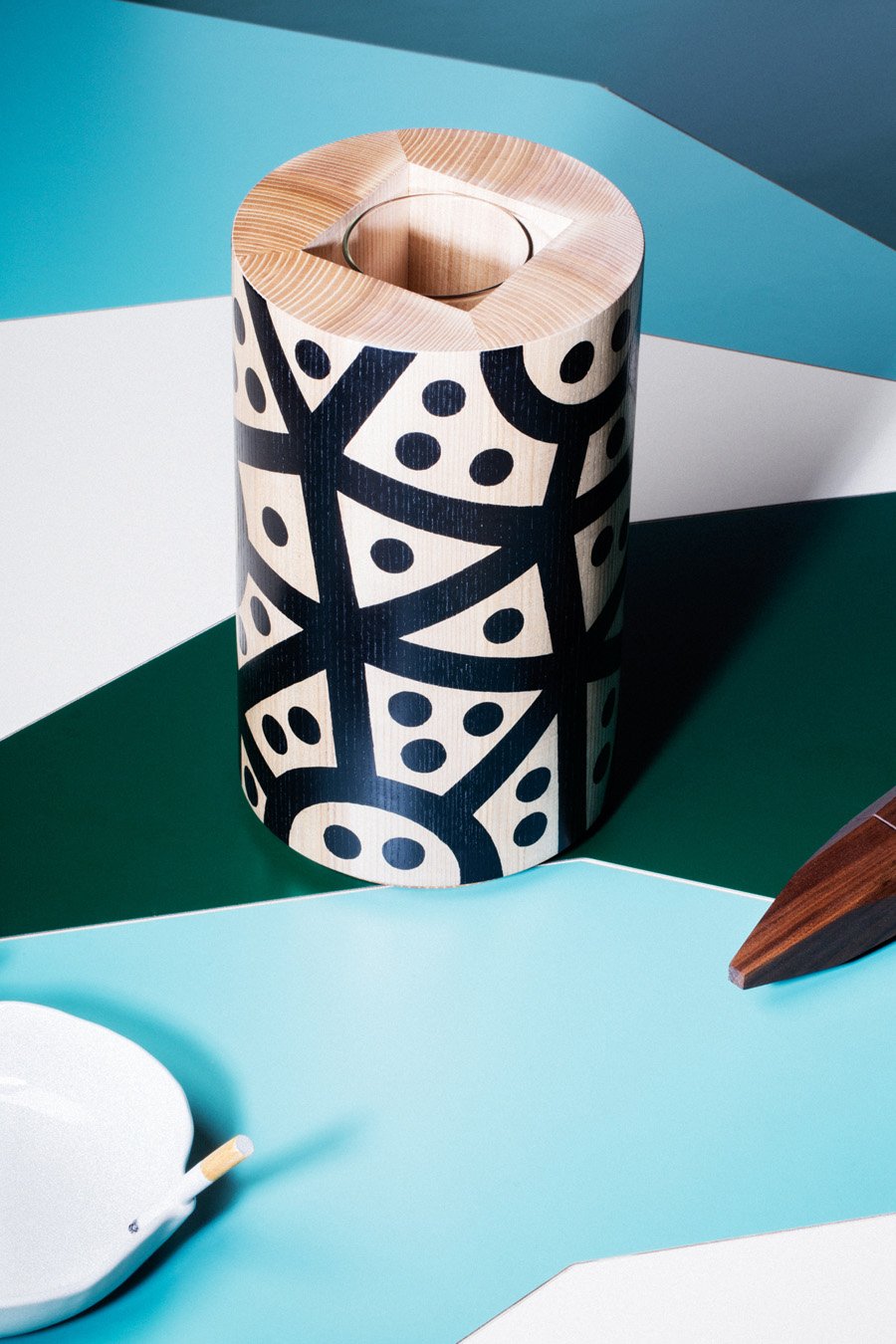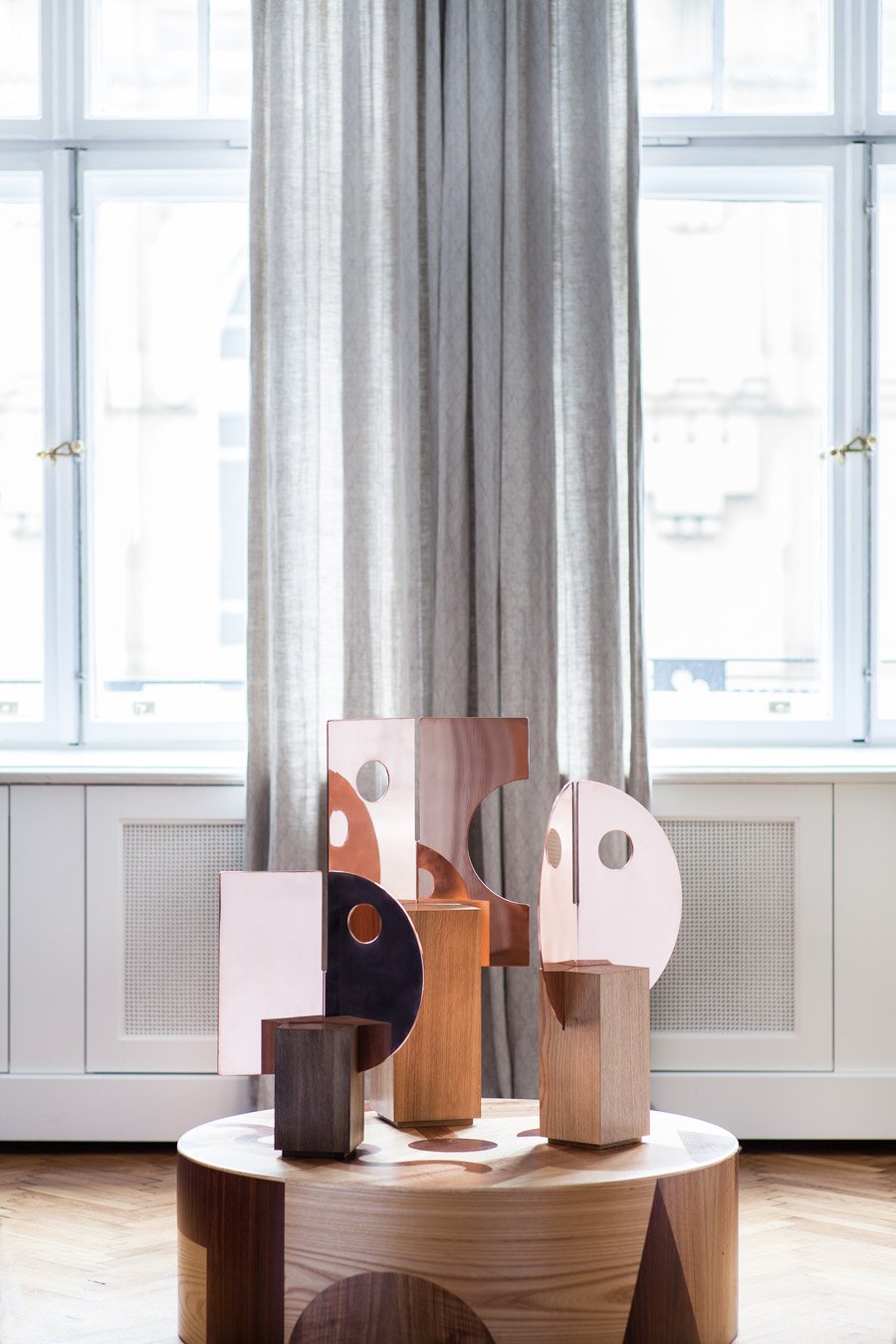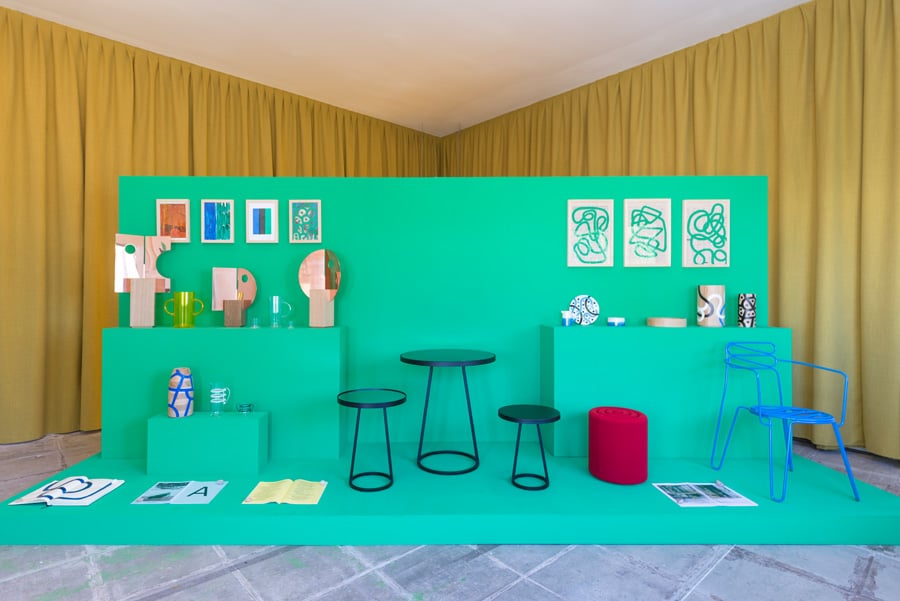
July 18, 2018
New Talent 2018: Maria Jeglińska Examines the Social and the Political Though Her Products and Installations
The Warsaw-based designer and Konstantin Grcic alum interweaves social narratives and familiar household objects.
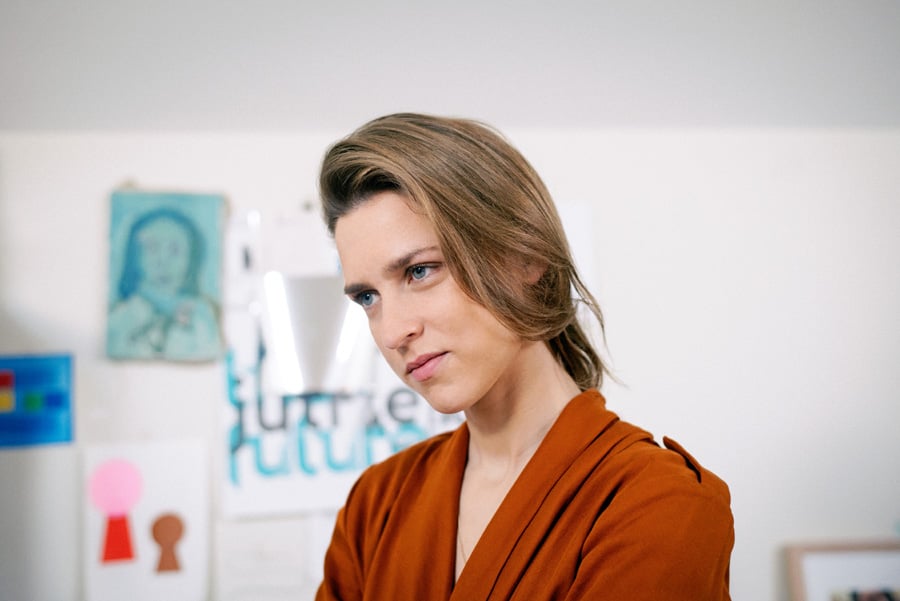
Are you tired of your present? If so, consult the rules of the game and proceed. Would you edit your past? Yes? Flip the card. Are you afraid of the cloud? Answer truthfully. Or not.
These piquant prompts were part of Warsaw-based designer Maria Jeglińska’s installation at the 2016 London Design Biennale, which asked participants to wrestle with the contemporary relevance of “utopia” as a concept. Jeglińska (and her collaborator, the art historian Klara Czerniewska) responded with a cunning, if simple, game that compelled players to choose their own path and reveal a little bit about themselves in the process.
The motivation was social, and it’s an impulse you can find throughout Jeglińska’s body of work. “I’ve always liked to think about how people live, or have lived,” she says. “Objects, furniture, things—their meaning can change, depending on the context.”
Her 2015 Little Black armchair, a doodle in three dimensions, and ironically painted azure blue, illustrates the point nicely. Its name refers to the Polish order for a basic coffee, recalling Warsaw amid the post-Stalin 1950s Thaw, when a café culture was permitted to take root.

Be they metonyms or aide-mémoires, Jeglińska’s objects are never quite as naive as they seem. (Having worked for a time for Konstantin Grcic, Jeglińska has a similar appreciation for laconic spareness.) Many, such as her ceramic vase prototypes for Vitra, collectively titled Portable Landscape, seem to have their own private lives or sets of relations—huddled together in groups of threes and fours, they could almost be muttering to one another.
Explaining her penchant for still lifes, she cites a passage from Samuel Beckett in which he imagines “long afternoons together” with a beloved stool and other “familiar objects.” Jeglińska adds, as if to clarify the reference, “It is very hard for me when working on an object to start with a typology. I always start from a context, even if it is an imaginary one.”
You might also like, “For Furniture Design Company Kalon, Each Piece Starts in the Designers’ Own Home.”




